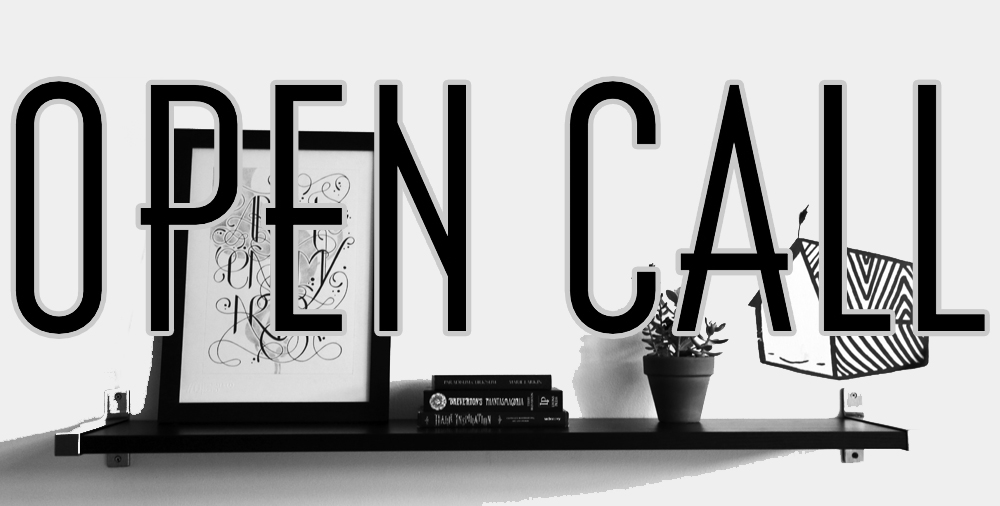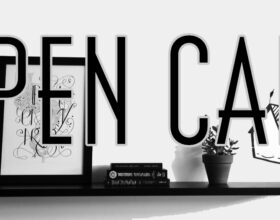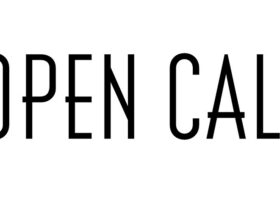Welcome to the 16th edition of Open Call. Today we are talking about opinions. Everybody’s got ‘em, amirite? By the way, the title of this week’s post is borrowed from the title of a Beach Slang song. They are a wonderful band. Philly represent.
Email us at [email protected] with any questions you have, concerns, success stories, challenges, or any other topic you’d like to discuss with a Gallery Director. Every other Monday we’ll publish a few of our favorites along with my replies. If you don’t see your email published, it does not necessarily mean it won’t be saved for a future installment. There have already been way too many good questions to make it into just one edition.
Visit my online author profile and stay updated on past editions. **Some emails have been edited for length.
Hi there
How would you be able to tell good art from bad art, and the general question which has(in my opinion) become a bane on art, “what is art”… Do you respect craftsmanship or the idea?
Kind regards,
Themba
Hi Themba,
Thanks for your question. I’ll tell you something that may surprise you. I am a person who spends quite a lot of time thinking about art, looking at it, having to analyze different things about it, thinking about the business of it, talking to and working with artists, etc. In terms of ‘time spent thinking about art’ I spend a lot more time than the average person, for sure – because of my job, that’s a lot of it, but also I like art quite a lot. My point is that as a person who does and has to spend a pretty decent chunk of time thinking about art, I personally think dwelling on questions like ‘what is art’ and thinking about what’s ‘good art’ and what’s ‘bad art’ is a big waste of time. That’s just how I feel.
With that being said, I do think the conversation about ‘what is art?’ is a perfectly fine and valid conversation to have, and one that I do believe can bring up a lot of potentially interesting points and perspectives, some perhaps more valid than others. If anyone wants to talk about it, explore it, or try to tackle the question academically, I think that’s awesome. I don’t criticize anyone for wanting to have it. It’s just not a conversation that I am interested in having myself. I guess I just don’t think it matters much. Also in many of my own experiences, I have felt like the idea of good and bad art has little to do with quality, and more to do with older ideas of art and the art world being elitist and exclusionary, and personally, I am much more interested in art and the world around it being inclusive.
I do see art I sometimes think is bad. I’m not pretending that there’s no such thing.
Here’s something interesting though that I’ve observed a ton, not just with visual art, but also with music, and movies, tv shows, books, etc., and this is a thing that does bug me a little, and I’m sure you’ve seen it too. What I see a lot is people saying something is ‘bad’, when they just don’t like it. Often times it’s something that isn’t even trying to be whatever it is they like. So you’re talking to So and So, and they love hyper-realism in their art, and the craft and obvious technical aspects to create work like that – and that’s what they love. If they see a piece and it’s all those things it’s great! But So and So sees an abstract piece and declares that it is BAD. No, So and So. Not necessarily. You just don’t like it, and this particular artist does not make art on your terms. We should agree to be okay with that.
I think that if everyone was more honest about how much their personal tastes are just that, personal tastes, and didn’t feel some weird obligation to tear down or dismiss things that they don’t like as if they were not worthy of being liked, it would be a wonderful thing.
Again, I don’t think we need to pretend everything is good, just that we should burn more calories supporting the things that we enjoy, instead of wasting our time sh**ting on everything else.
At Arch Enemy Arts, we show a lot of work and artists who fall into the category of New Contemporary. You see a lot of figurative works, pop surrealism, work that is often very upfront with its narrative elements and so on. One thing that I’ve said many times before when asked about how we choose which artists we would like to show and what the common threads are in our curation, is that there’s a certain technical proficiency – a technical build and craftsmanship that I believe is always found in the work that we show. So I appreciate the idea of craftsmanship very much personally.
In my opinion, there’s a certain element of construction to the work that we show that does not require a person to ‘know about art’ in order to appreciate. I think that some people who are snobbier might try to spin that as some sort of pejorative, but I am very comfortable with the idea that I like this quality myself and it’s something that very much defines the art that I like. When I think about great artists of the past, I love Gustave Dore, and Hieronymus Bosch, and things like that. That’s what I’m into. I have never been very attracted to super conceptual stuff, minimalism, or things like that. However, I am also not quick to write those things off as bad. It’s just not my taste.
Hope that answers your question!
-patrick
Hello,
My art always comes from an emotional place but without a thought of marketing or finding an audience. If the work is meaningless to me Surely it will be meaningless to anyone looking at it.
I know people look at my work and interpret as they will, I find that interesting and it also motivates me to make work that means something to me. Sometimes a comment made by someone gives me insight into myself that I never thought of before.
This is a reason I have been at it so long. Whether I am a commercial success is another topic altogether for me.
Sorry I gave you an opinion rather then a question. Thank you for caring enough to put out there open call.
-Christine
Hey Christine,
Thanks so much and nothing to be sorry about. The questions are always good but I think this is as much a space for other thoughts and experiences. I think these things can sometimes be just as helpful and make just as interesting conversation.
One thing that I thought about when reading your email was the idea of meaning being static in art. It may be a small part of your opinion, but it’s still something that I thought about after reading. I think that some of the best artists out there, and from the past, had/have an uncanny ability to communicate ideas and emotions through their work. To look at a scene and feel exactly what that artist was feeling and trying to express is surreal and a very difficult thing that not many people can do. However, I don’t think you can ever discount a person’s ability to find meaning where there wasn’t supposed to be any, or to see themselves and their own story in whatever it is they’re looking at. So in that way I don’t think that meaning in art is limited to the intent of the artist. In fact, I think that is sometimes just as interesting, and just as fascinating. People tend to believe that the artists are pouring themselves into each piece and that they have something very meaningful that’s being said with every piece – and this is usually true – but it’s not without exception. Sometimes an artist, especially one who works full-time, just makes a piece of art. And it’s awesome, and looks great, and everyone loves it, but it just kind of is what it is. Then something interesting happens, and you see other people project their stories and emotions onto it. It becomes deep, meaningful, and emotional without the direction of the artist. I think that’s awesome it its own right when that happens, and that, no matter if it was intended or not, is something that I love about art.
Keep doing what you are doing for the reasons that are important to you. There’s no better way to go about it.
-patrick
Hey Patrick,
I wanted to submit an artful thought to the open call I just saw on your instagram~ I’m obviously a fan of your aesthetic and would love to be a part of the conversation.
Truthfully, I think one of the most important aspects to being an artful human and wanting to connect with other humans~ is to truly put your best energy forward. In meetings, hangouts, at the office, alone at home, and out in public. Because really it’s our best energy that not only represents who we are most but is also the person that makes us feel most confident~ and as a creative person you learn that your most confident self is your most successful self. It’s important to take care of your energy and be mindful of when you’re lacking that bright edge so you can be aware of when to step back and take some time for yourself. Or when you’re on fire and are ready to represent!
Cheers! Thanks for the call out~ artist to artist.
Michaela
Hey Michaela,
I think this is a wonderful state of mind and think it’s well worth sharing. I’m not even going to say much about it in hopes that people can read your advice and just think about it. It’s funny because I was having a conversation just yesterday with someone about how I think a person’s ‘best energy’ is what ultimately defines them.
“Because really it’s our best energy that not only represents who we are most but is also the person that makes us feel most confident”
Thanks so much for sharing with us.
-patrick
Patrick Shillenn is the co-founder and director of Arch Enemy Arts in Philadelphia. He doesn’t think he has all the answers. He just wants to have the conversation.
Follow him on IG @pshillenn & Twitter @mathclub





